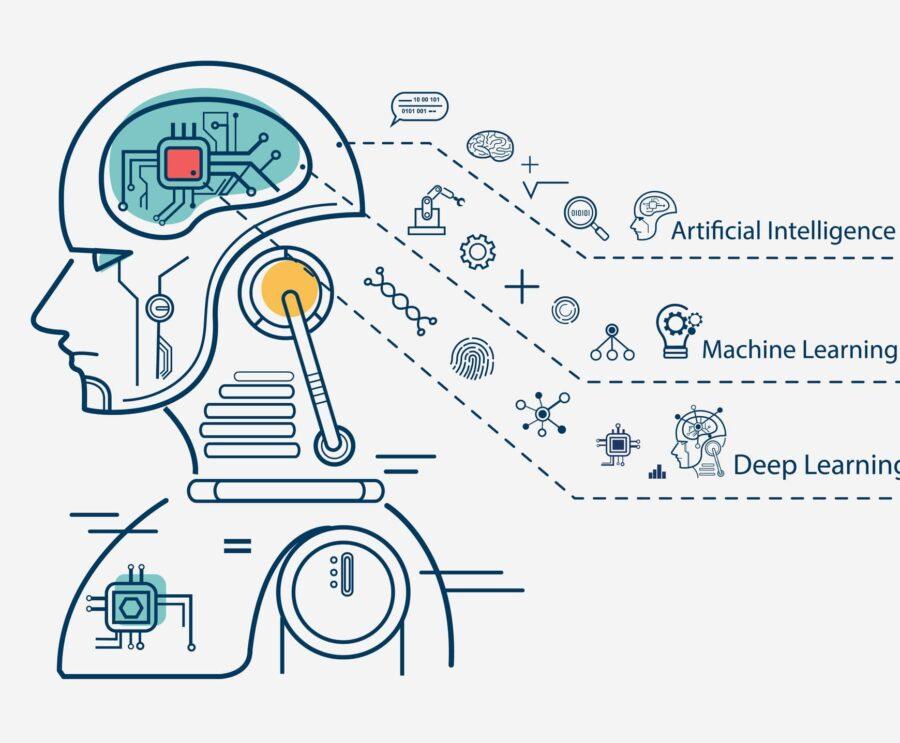In a world where technological advancements are constantly evolving, machine learning has become a crucial component in various industries. And when we talk about machine learning in Elixir being production-ready, we’re not just referring to a mere possibility – we’re talking about a tangible reality that is ready to revolutionize the way we approach data-driven solutions. So, what exactly do we mean when we say that machine learning in Elixir is ready for the big leagues? Let’s delve into the specifics and explore the undeniable potential of this dynamic combination.
– Understand the robustness of Elixir’s built-in libraries for machine learning implementation
One of the key aspects that make machine learning implementation in Elixir stand out is the robustness of its built-in libraries. These libraries are designed to handle complex machine learning tasks efficiently and effectively, making Elixir a strong contender for production-ready machine learning projects.
In addition to robust libraries, Elixir’s built-in tools for parallel processing and fault tolerance further enhance its suitability for machine learning implementation. With features such as lightweight processes, supervisors, and fault tolerance mechanisms, Elixir provides a solid foundation for creating scalable and resilient machine learning applications. By leveraging these capabilities, developers can confidently build and deploy machine learning models that meet the demands of real-world production environments.
– Explore the benefits of utilizing Elixir’s functional programming approach in machine learning projects
When it comes to machine learning projects, Elixir’s functional programming approach offers a multitude of benefits that can greatly enhance the development process. One of the key advantages of utilizing Elixir in machine learning projects is its ability to handle complex data processing tasks efficiently. The functional programming paradigm allows developers to manipulate data in a more structured and predictable manner, making it easier to implement algorithms and analyze large datasets.
Furthermore, Elixir’s lightweight processes and fault-tolerant nature make it an ideal choice for building scalable and resilient machine learning systems. With Elixir, developers can easily distribute computational tasks across multiple nodes, enabling parallel processing and improving overall performance. In addition, Elixir’s robust error handling mechanisms ensure that machine learning models can run smoothly in a production environment without being disrupted by unexpected failures.
– Consider the scalability and performance implications of using Elixir for machine learning in production applications
When considering the scalability and performance implications of using Elixir for machine learning in production applications, there are several key factors to keep in mind. One of the main advantages of using Elixir for machine learning is its ability to handle concurrent processes efficiently. Elixir’s actor-based model allows for lightweight processes, which can run in parallel and communicate seamlessly, making it ideal for handling complex machine learning tasks.
Additionally, Elixir’s built-in support for fault tolerance and distributed computing makes it a robust choice for production applications. Elixir’s Phoenix framework, which is known for its performance and scalability, can be easily integrated with machine learning libraries such as TensorFlow or SciKit-Learn. This combination of technologies can provide a powerful platform for deploying and scaling machine learning models in production environments.
– Implement best practices for monitoring, debugging, and maintaining machine learning models in Elixir
When I talk about machine learning in Elixir being production-ready, I mean that we have the tools and practices in place to ensure the smooth operation of machine learning models in real-world applications. One key aspect of this readiness is implementing best practices for monitoring, debugging, and maintaining machine learning models.
By following these best practices, we can ensure that our machine learning models are performing optimally, are easily debuggable in case of errors, and can be maintained and updated without causing disruptions to our production systems. Some of the key practices to consider include:
- Regular monitoring: Setting up monitoring tools to track the performance of machine learning models in real-time.
- Comprehensive debugging: Building in-depth debugging capabilities to quickly identify and fix issues in the models.
- Proactive maintenance: Establishing a maintenance schedule to regularly update and improve the models based on new data and insights.
To Conclude
In conclusion, machine learning in Elixir has proven itself to be a robust and reliable option for developers seeking a production-ready solution. With its unique combination of performance, scalability, and developer-friendly syntax, Elixir offers a compelling platform for implementing machine learning algorithms. As we continue to push the boundaries of technology, Elixir remains a powerful ally in the pursuit of innovation. So, whether you’re a seasoned developer or a curious newcomer, consider exploring the exciting possibilities that machine learning in Elixir has to offer. Elevate your projects, embrace the future, and let your creativity soar with this cutting-edge technology. The possibilities are endless.
